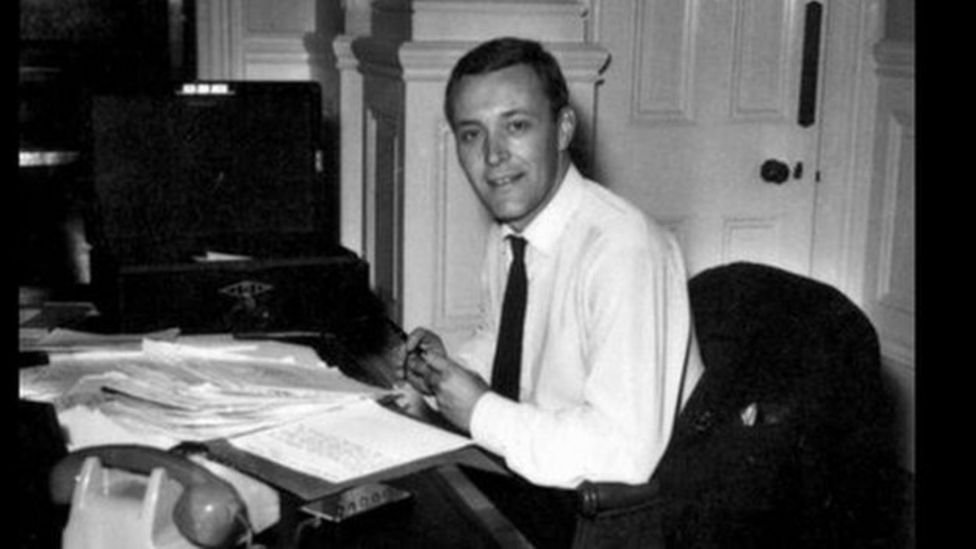
Tony Benn Life
Tony Benn, Born on 3 April 1925 in Westminster, London, and died on 14 March 2014, Tony Benn was a prominent figure in British politics, known for his unwavering commitment to democracy, socialism and human rights. His political career spanned more than fifty years and was characterised by his passionate advocacy of the commons, his anti-war stance and the empowerment of the working class.
Early Life and Entry into Politics
Benn was born into a political family; his father, William Wedgwood Benn, was a Liberal and Labour politician. Tony Benn’s early exposure to politics and his experiences serving in the Royal Air Force during World War II profoundly shaped his political views. He entered Parliament in 1950 as the Member of Parliament (MP) for Bristol South East, representing the Labour Party.
Renunciation of Hereditary Peerage
A pivotal moment in Benn’s career was his campaign for the right to renounce his hereditary peerage, which he inherited upon his father’s death in 1960. The Peerage Act 1963, largely a result of his advocacy, allowed him to disclaim his title as the 2nd Viscount Stansgate and return to the House of Commons, underscoring his commitment to democratic principles.
Ministerial Roles and Advocacy for Public Ownership
During the 1960s and 1970s, Benn held several ministerial positions, including Postmaster General, where he championed the modernisation of the postal service and introduced the first UK postage stamps featuring non-royal subjects. As Secretary of State for Industry in the 1970s, Benn advocated for public ownership of industries and greater democratic involvement of workers in company management.
Anti-War and Anti-Nuclear Campaigns
Benn’s opposition to nuclear weapons and military interventions was a hallmark of his political stance. He was a vocal critic of the Iraq War and campaigned tirelessly for peace and disarmament, reflecting his broader critique of imperialist policies.
Contribution to Democratic Socialism
Tony Benn’s commitment to democratic socialism, underscored by his dedication to economic democracy, social justice, and the redistribution of power from the elite to the working class, was a cornerstone of his political career. He championed a ‘‘Common Ownership’’ model, supporting the nationalisation of key industries to ensure broader public control. Benn was also a strong advocate for the Alternative Economic Strategy (AES) during the 1970s and 1980s, a framework that aimed to shift economic power away from corporations and towards workers and communities. This consistent focus on empowering the many, rather than the few, exemplifies his enduring legacy in the landscape of British socialism.
Tony Benn chronology
3 April 1925 Anthony Neil Wedgwood Benn, known as Tony Benn born in Westminster.
1938-1942 Attended Westminster School.
3 April 1942 Joined the Labour Party, aged 17.
December 1942 Entered New College, Oxford.
July 1943 Volunteered for the Royal Air Force.
22 June 1944 Death of Tony Benn’s elder brother Michael.
March 1945 Qualified as a pilot.
1947 President of the Oxford Union.
1947-1948 Toured the US with debating team.
17 June 1949 Married Caroline Middleton De Camp. They were to have four children (Stephen b.1951, Hilary b.1953,
Melissa b.1957 and Joshua b.1958).
30 November 1950 Elected to parliament for Bristol South East.
1950-1960 Active in the Movement for Colonial Freedom and as broadcasting advisor for the Labour Party’s election campaigns.
1957-1958 Shadow spokesman on the RAF.
1959 Elected to Labour’s National Executive Committee.
1959 Shadow transport minister.
1960 Death of his father puts Benn next in line to be Lord Stansgate and therefore disbarred from the House of Commons.
1961 Benn stands successfully for Bristol South East again and is again disbarred after an election court.
1963 Peerage act allows renunciation of peerages. October: Benn is re-elected to Bristol South East.
1964 Labour victory in the general election 15 October. Benn is made Postmaster General.
1966 July Benn is made Minister of Technology.
1970 Labour loses election, in opposition years Benn allies himself more closely with the left of the party.
1974 Labour wins election with a promise of a referendum on the Common Market, at Benn’s suggestion. He is made industry minister.
5 June1975 Referendum decisively backs membership of Common Market.
1975 Benn made energy minister, negotiates North Sea oil revenues for the UK.
1979 Conservative victory under Margaret Thatcher.
1981 Benn stands unsuccessfully for the deputy leadership of the Labour Party.
1983 Benn stands unsuccessfully for a new (redistributed) seat of Bristol East.
1984 Benn elected for Chesterfield constituency and is active throughout the miners’ strike.
1987 Benn publishes Out of the Wilderness, the first of nine volumes of diaries published over 26 years.
1990 Benn is a leading opponent of the Poll Tax.
2000 Death of Caroline Benn.
11 May 2001 Retirement from parliament to give him ‘more time for politics.’
2001 Begins the national touring event ‘an evening with Tony Benn.’
2002-2004 Active in the Stop the War Coalition against the invasions of Afghanistan and Iraq.
2009 Benn suffers a mild stroke, diary entries finish.
14 March 2014 Benn dies in Holland Park, London.

